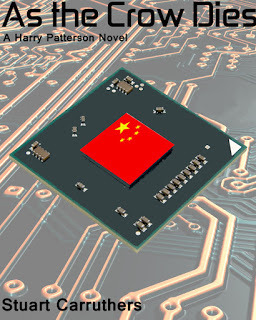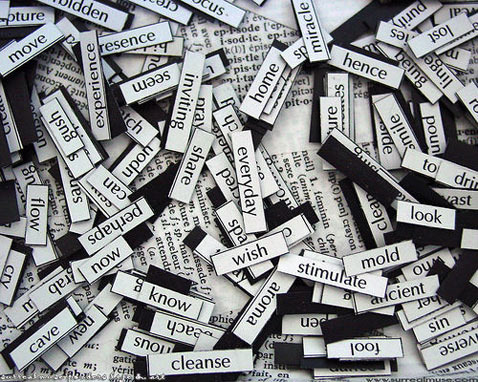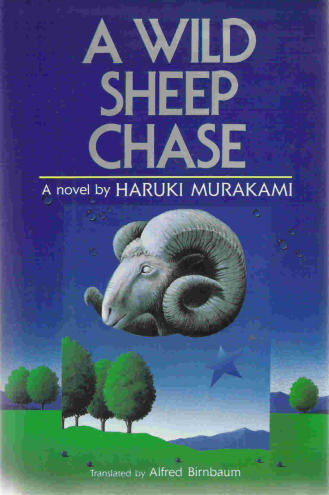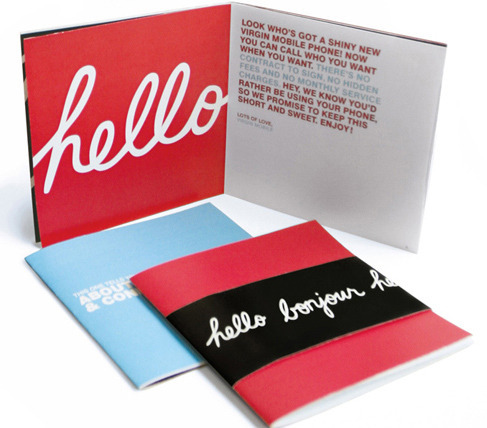Stuart Carruthers's Blog, page 4
May 20, 2012
Judge a book by its cover

The hoary old adage - "don't judge a book by its cover"- is a great piece of advice but one that's very hard to follow when more so than ever we have less time than ever to to make our decisions. Having a leisurely browse through the leafs of the pages in a book shop is an almost forgotten pleasure. Today's book browsing is more likely to be done from a computer screen when being distracted by incoming e-mails or Facebook conversations.
So now, we have to punch harder and come up with punchier titles and better graphics to convey the message in even less time.
As the Crow Dies can be bought here.

Published on May 20, 2012 19:14
May 2, 2012
Where do Words Come From?

Ever wondered where the words you use come from? Etymology is a fascinating subject, but if you just have a passing interesting and not the will to go wading through Douglas Harper’s wonderful online dictionary of etymology its worth looking at a new project from Ideas Illustrated http://ideasillustrated.com/blog/2012/04/01/visualizing-english-word-origins/.
Here, the author has a selection of quotes which are highlighted in different colours to indicate where they derive from.
Supreme executive power derives from a mandate from the masses, not from some farcical aquatic ceremony.
This is a surprisingly complex Monty Python quote where the colors represent Old English (pink), Middle English (red), Anglo-French (orange), Old French (light orange), Middle French (pale orange), and Classical and Medieval Latin (both yellow). I suspect that both the complexity and variety of word sources is intentional — standing in humorous contrast to the appearance of the speaker.

Published on May 02, 2012 17:51
April 12, 2012
Found in translation | SF Bay Guardian

I'm a big fan of Haruki Murakami and am constantly surprised by his work. But I read his work in English, a far cry from the original Japanese and I'm amazed at how well the surreal nature of his work comes across. I'd known for a while that he only used two translators, to preserve the quality of the original and now here's an interview with them from the SF Bay Guardian
Found in translation | SF Bay Guardian

Published on April 12, 2012 19:59
April 10, 2012
You SHALL be green!

Personally I'm sick of being told to be environmentally friendly by everyone from my kids (who have been brainwashed at school) to governments (who don't seem to do much to reduce corporate energy wastage). But, one of the more interesting green arguments is how much more environmentally friendly are e-books over printed books? Obviously e-books don't need to be printed and then shipped but the devices they're read on do. So are they really any more environmentally friendly than paper?
To answer this the national geographic has an interesting piece:
The amount of paper used for books in one year was estimated at 1.5 million metric tons, and each book produced gave off an estimated 8.85 pounds of carbon dioxide. Study groups have found that the carbon released from eBooks is offset after people read more than 14 eBooks. For the life cycle of a device for reading books, the carbon emitted is offset after the first year. The savings in carbon emitted into the air is around 168 kilograms for the following years after the first year of use.
It concludes with this bit of advice:
An avid reader, who will read more than 10 books a year, should consider buying a device anddownload ebooks to benefit our environment.
You can read the full article here.

Published on April 10, 2012 19:26
April 9, 2012
When is a book not a book?

The interesting thing about Amazon is that everything that is sold in their books section is classed as a book. No matter whether it's a single sheet of A5 with one word on it or the complete works of Tolstoy.
So, should there be a separate nomenclature for shorter works of fiction? I appreciate we have terms like: short story, micro fiction, nanofiction and so but they are still clumped together under the term 'Novel' or 'Novella'.
When I buy a novel I expect about 80,000 words or in laymans terms 'a good long read', when I buy a 'novella' I expect a 'good short but punchy read'. Short stories, microfiction and nanofiction are often collected into a single work and called 'a collection of...' therefore I expect another 'good long read of different stories.'
But what if what I'm writing doesn't fit neatly into those categories? I don't have enough words to call it a novel or a short story and I don't have a collection of them to bundle together. The buyer then feels short changed when they are buying my story and may not return to buy my work again.
I now want to publish the e-booklet. A single work of fiction that leaves the purchaser under no illusion that what they are getting is a very very short story. But then do we have further subcategories such as e-pamphlet, which would be smaller than a booklet?

Published on April 09, 2012 23:33
April 1, 2012
Promo Video is Now Available
Published on April 01, 2012 20:41
March 29, 2012
New flexi screen Kindle or Sony ebook coming soon?

It's been a long time coming but the flexible screen is finally here. Who'll be the first brand to release it into the wild?
http://www.engadget.com/2012/03/29/lg-flexible-e-paper-display-launch/?a_dgi=aolshare_facebook

Published on March 29, 2012 20:50
February 24, 2012
What lessons I've learnt from publishing my first book?

What lessons have you learnt from publishing your first book?
I've learnt a couple of things recently and it's a good job you can republish your book electronically really quickly.
1. Carefully select the friends who can and will edit your work efficiently and honestly.
I have many fiends who are writers of various disciplines but some are better than others.Someone who I'd previously not thought of for editing has just provided really valuable advice and criticism that will take a while to fix and another who I thought would be ideal just didn't want to help in enough detail. Lesson learnt - don't discount anyone until they've done you one favor.
2. Provide all editors with the best draft you can have not a crap first copy. In my haste to get a book out there I irritated some friends by giving them a first draft that wasn't really worthy of name. Make sure it's at least readable and all your tenses are in order.
3. Don't be too hasty to get the book out. Slow down and step back from it for a while.
So what have you done that you won't do again?

Published on February 24, 2012 01:12
February 9, 2012
I've just been interviewed by Kris Wampler, autho...
[image error]
I've just been interviewed by Kris Wampler, author of Lovetrain.
You can read my interview on Kris's blog.


I've just been interviewed by Kris Wampler, author of Lovetrain.
You can read my interview on Kris's blog.

Published on February 09, 2012 16:54
February 3, 2012
I'm now on Goodreads check out my profile at ...
[image error]
I'm now on Goodreads check out my profile at Goodreads.com.
In the mean time a sequel to As the Crow Dies is in the works. Watch this space for more details.



I'm now on Goodreads check out my profile at Goodreads.com.
In the mean time a sequel to As the Crow Dies is in the works. Watch this space for more details.


Published on February 03, 2012 00:39
























